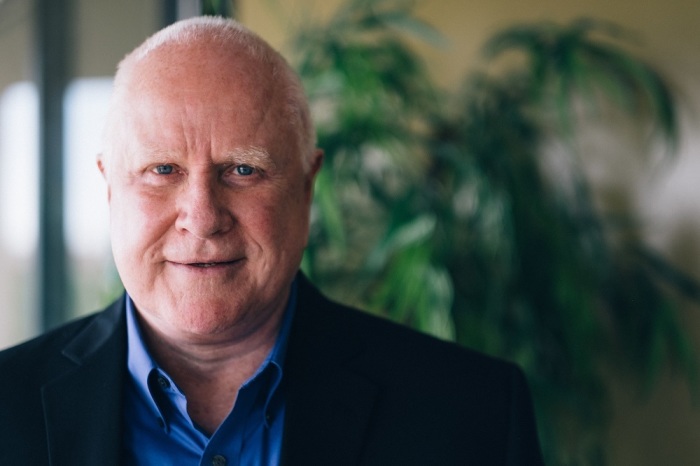Should Christians have retirement? Book offers biblical alternative to culture of self-indulgence

As someone who has spent over 30 years in the financial services industry providing retirement plans to faith-based organizations around the world, Envoy Financial CEO Bruce Bruinsma has come to know how people tend to spend their time once they retire.
Many have daydreamed about the idea of living a retirement life free of responsibilities and filled with leisure and self-indulgence. But today’s retirement culture, Bruinsma believes, runs counter to the Gospel.
“Probably starting about five years ago now, God just impressed upon me that that I need to perhaps look at this whole issue of retirement in a different way,” Bruinsma told The Christian Post in a recent interview.
“Most people, when they say the word ‘retirement,’ they think of money or they think of investments. But there is so much more.”

Bruinsma argues in his newest book, The Retirement Reformation: Finding Freedom with Faith…. a Better Way to Experience the Final (And Best) Decades of Your Life, that the Christian community has bought into the culture’s definition of retirement rather than the biblical perspective of the golden years.
“When you do the research, the majority of Christians when asked what they are going to do in retirement, they give you some version of nothing,” he explained.
“We're called to be faithful for a lifetime, not just for a season. But that is not the way we are acting. We are acting as if when you hit 65 or 70 that now is the time to focus on rewarding yourself for that period rather than looking outward.”
“The whole idea of retirement is not in the Bible,” he added. “There is not a biblical concept of retirement. However, what is biblical is that God has a plan for our lives and that we are stewards of all of our resources and be faithful for a lifetime.”
Because people are living longer lives today than they did in previous generations, living 30 years after retirement is not an unusual thing. Because of this extended period of time at the end of life, Bruinsma contends that the “whole dynamic of our lives” has changed.
“When I was growing up, someone worked until 65 and they died at 67. And if they made it to 70, they were really old,” he explained. “That is simply not true anymore.”
Bruinsma says that while most Christians are pretty clear about what they are retiring from, they are unclear about what they are retiring to.
“The goal is to jam as much leisure as you can into that remaining period,” he said. “Well, if God's got a call on your life, obviously, a key part of that is to represent Jesus to the world and to make a difference in the lives of others — what we would call ministry. Yet again, that's not the way that we act.”
According to Bruinsma, there are 10,000 people turning 65 every day in the U.S. and about 30 million people 60 and above in the U.S.
“If the majority of those are doing nothing to build the kingdom, what I realized is that we got the greatest unused people group sitting on the sidelines," he reasoned. "One of the reasons they are sitting on the sidelines is because no one is challenging them to think about what God has planned for them and prepared them to do during that next period of life.”

Last November, Bruinsma convened a group of 16 thought leaders who have written about this matter for two-and-a-half days. The consensus was that it would “take a movement” for the retirement culture to change.
It was at that meeting that Bruinsma and the other thought leaders developed the Retirement Reformation Manifesto. The document highlights 10 principles that need to be addressed. It calls on Christians to “live for more than our culture’s definition and expectations of retirement.”
Over 1,200 people have signed onto the manifesto.
“We choose to enter each new season with a God-directed vision of His preferred future for us,” the manifesto reads. “Every season of life prepares us for the next. Each of us needs encouragement, training, equipping, and coaching as we seek to live out a lifetime of faithful service.”
Bruinsma warns that contrary to common thought, retirement is not just one homogeneous phase in a person’s life. He contends that retirement should be broken down into three different phases.
The first is the transition from career work to retirement that usually takes place around the ages of 67 to 70. Bruinsma calls it the “period of active application.”
“This is realizing that when that transition is being made, they are still fully capable and prepared in knowing that God has a unique role for them.”
In this stage, he says people should come to the realization that they were chosen by God to advance the kingdom and also sit back and think about what needs God has prepared them to deal with.
Bruinsma does not believe that churches are doing enough to challenge seniors. He warned that seniors are the “least embraced” in terms of ministry application.
“We have a big issue with the Church,” he said. “At the same time, we have an issue with each one of us individually.”
At the age of 78, Bruinsma said that one of the things that God has called him to do for the next 10 to 15 years is to help lead the Retirement Reformation movement.
Additionally, Bruinsma owns a coffee plantation in Laos that uses as a business ministry to reach the people of Laos for Christ.
Bruinsma has heard stories of how those who have signed the Retirement Reformation Manifesto have used their time during retirement.
He told the story of 93-year-old Peg, a retired missionary living in assisted living who is “praying her way through the phone book.”
Every morning, he said, she goes systematically through the phone book to call people to ask how she can pray for them.
“If you can do that at 93, what perhaps can we be called to do at 73?” he said.
Bruinsma assured that it is OK for Christians to balance missional work with leisure and travel during their retirement.
“One of the beauties about a vacation is that it is a change from our normal activity. And it's a time of refreshment,” Bruinsma said. “We all need that. We all need that, obviously. But, we don't need 30 years of it.”
One of the goals, Bruinsma said, is to get a Retirement Reformation coordinator in every church in the country to help individuals in local congregations move through the different stages of retirement.
He added that an eight-to-10 week Bible study will soon be released.
“We want to continue to provide resources for people to help them to take their own next steps as part of this movement,” he stressed. “I think God is raising up that conversation across the country. Over the next 10 years, we're going to see the solutions take root.”
Follow Samuel Smith on Twitter: @IamSamSmith
or Facebook: SamuelSmithCP




























